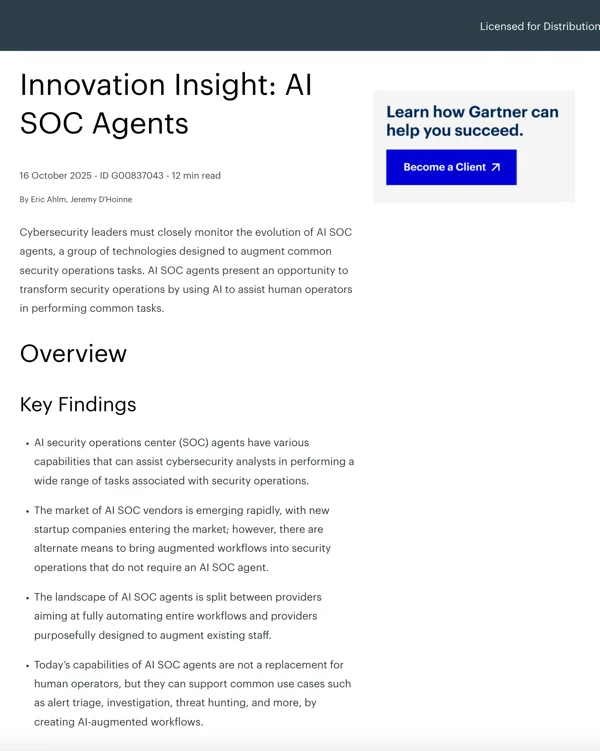Definition: what is SOC as a Service
SOC as a Service, sometimes written as SOC-as-a-Service or SOCaaS, is a subscription model where a third party delivers Security Operations Center capabilities such as monitoring, alert triage, investigation, and incident response guidance. The provider supplies the people and processes for detection and response, while the customer owns and connects data sources like SIEM, EDR, identity, cloud, and network telemetry. Objectives include around the clock coverage, faster detection and response, lower upfront operational costs, and access to specialized skills.
How we got here: from on premises SOC to outsourced SOCaaS
Early security operations were run inside the company. Organizations staffed analysts, bought and integrated tools, and tuned detections themselves. As attack surface and signal volume grew, many teams struggled to hire analysts and to maintain coverage outside business hours. Managed service providers and managed detection and response firms filled the gap by offering monitoring and investigation as a service. SOCaaS promised predictable cost, 24 by 7 eyes on glass, and a turnkey program for teams without the scale to build their own SOC.
{{ebook-cta}}
Where SOCaaS helps
- Coverage. Immediate 24 by 7 alerting and triage
- Experience on demand. Access to analysts and playbooks without hiring
- Lower barrier to start. Faster path to basic detection and response workflows
- Compliance support. Useful evidence and reporting for audits
Limitations customers report today
- Latency. Alerts often wait in a provider queue before analysis begins
- Thin context. External teams seldom see full business context, which can reduce investigation depth and accuracy
- Context switching. Tickets bounce between customer and provider, slowing decisions
- Generic detections and playbooks. One size fits most services can miss environment specific signals
- Integration gaps. Tooling and data are spread across customer and provider systems, which complicates provenance and auditability
- Cost scaling. As data and alerts grow, service tiers increase and scope creep becomes common
The next phase: service as software with agentic AI in the SOC
Security operations are moving from outsourced humans plus tickets to embedded reasoning agents inside the customer stack. Think of this as service as software. The capability you used to buy as a managed service is now delivered as an always on AI investigator that lives in your tenant, connects deeply to your tools, and explains every conclusion.
This shift looks like a full circle:
On premises SOC → outsourced SOCaaS → embedded AI SOC Agents delivered as service as software.
What AI SOC Agents do
- Continuously watch alerts and events across SIEM, identity, cloud, endpoint, email, SOAR, and case management
- Gather evidence automatically and follow lines of questioning based on detection intent and environment context
- Produce explainable findings with linked evidence, reasoning, and confidence
- Trigger safe automations or propose actions for human approval
- Learn from feedback to tune future investigations
- Run within your cloud or tenant for stronger data control
When SOCaaS still makes sense
- You have no SOC team and need immediate 24 by 7 alert handling
- You operate a simple environment (low volume of alerts) and mainly need basic monitoring and notifications
- You are in a short term transition such as merger or tool migration
- You require a third party for specific regulatory expectations and do not have internal capacity yet
When to favor agentic AI SOC platforms
- You need faster investigation with consistent depth and clear evidence
- You want to keep investigation records and data inside your environment
- You plan to scale coverage without a matching increase in tickets and handoffs
- You want explainable automation that improves with feedback
Key takeaways
- SOC as a Service made modern monitoring accessible but introduces handoffs and context loss
- Service as software returns control to the customer by embedding reasoning agents directly in the environment
- Agentic AI SOC platforms deliver always on investigation and automation with explainability and better data control
- Many teams will combine internal expertise with AI agents and only use external services for overflow or niche skills
If you are exploring agentic AI in security operations, take a look at how Prophet AI investigates and responds to alerts across identity, cloud, endpoint, email, and more with clear evidence and reasoning. Request a demo to get started.

-min.webp)

